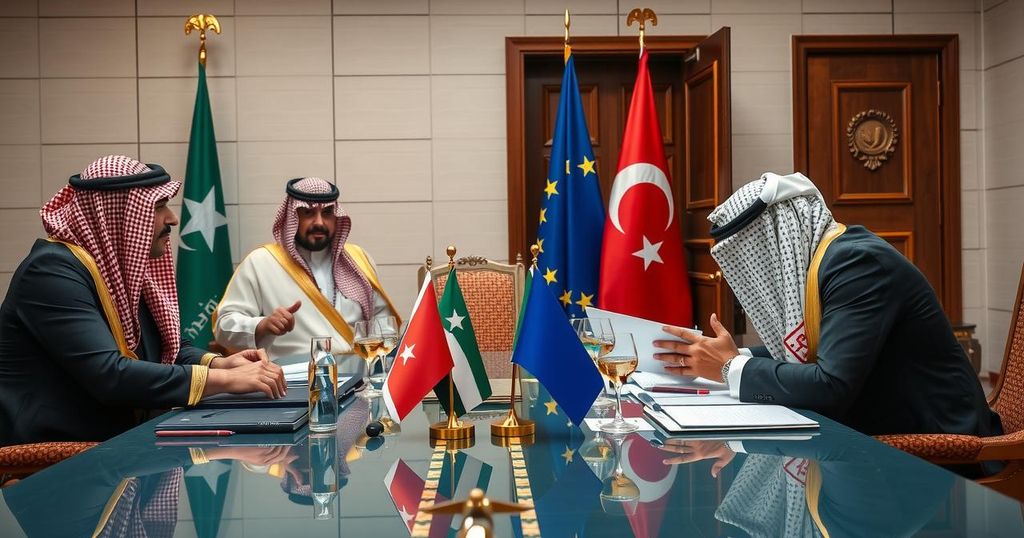Arab and EU diplomats met in Riyadh to discuss support for Syria following the fall of Bashar al-Assad. The talks featured two sessions focusing first on Arab officials and later including international representatives. Syrian leader Ahmed al-Sharaa seeks sanctions relief, while the EU considers lifting sanctions if an inclusive government is formed. More than a decade of conflict has devastated Syria, prompting this significant dialogue among global powers.
Senior diplomats from Arab countries and European nations convened in Riyadh on Sunday to deliberate on support measures for Syria in the wake of the recent political changes following the fall of Bashar al-Assad. The discussions were segmented into two sessions, with the initial session dedicated to Arab officials and the subsequent session expanding to include international representatives from nations such as Turkey, France, and delegations from the European Union and the United Nations.
During these critical talks, the newly installed Syrian leader, Ahmed al-Sharaa, is seeking alleviation from the sanctions imposed by Western powers, including the United States and the European Union. These punitive measures were enacted against Assad’s regime following its violent crackdown on protests in 2011, which precipitated a devastating civil war that has claimed over half a million lives and displaced millions, notably toward Europe.
Moreover, Kaja Kallas, the EU’s foreign affairs chief, indicated that the bloc could consider lifting sanctions, contingent upon the new Syrian government taking initiatives to establish an inclusive administration committed to safeguarding the rights of minorities. The engagement by Arab and EU diplomats illustrates the ongoing search for stability and rehabilitation in Syria, reflecting a shift in focus towards constructive dialogue after more than a decade of conflict.
The backdrop to the discussions is rooted in the longstanding Syrian conflict, which has resulted in a humanitarian catastrophe and significant geopolitical ramifications. With the recent transition of power following Assad’s regime, the international community is reassessing its strategy regarding Syria. The imposition of sanctions over human rights violations and the brutal suppression of dissent has complicated the path towards recovery for the nation, spurring debates on the balance between penalizing past actions and fostering a more stable political future. The EU’s consideration of sanction relief marks a pivotal point in potentially reshaping its foreign policy towards Syria, aimed at encouraging governance that respects human rights and inclusivity.
In summary, the gathering of Arab and EU diplomats in Saudi Arabia underscores a crucial moment in the international response to Syria’s evolving political landscape. The discussions may serve not only to address urgent humanitarian needs but also signify a potential thaw in relations dependent on the establishment of a more inclusive Syrian government. As stakeholders navigate the complexities of post-conflict recovery, the outcomes of these talks could significantly influence Syria’s future trajectory and the broader geopolitical dynamics of the region.
Original Source: www.scmp.com






